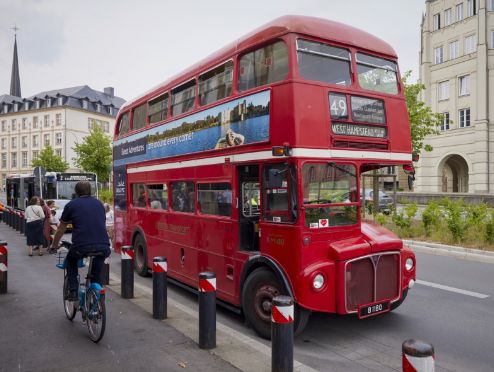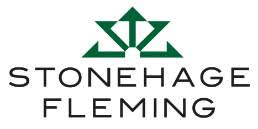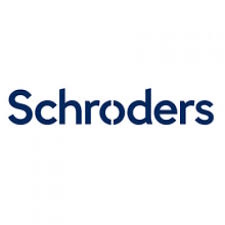ABOUT US
ABOUT US

The British-Luxembourg-Society ASBL was founded in 1947 to foster good relations between Britain and Luxembourg. Among its activities since then has been hosting an annual Sir Winston Churchill Memorial Lecture with speakers including Margaret Thatcher (when in office), Neil Kinnock, Chris Patton, George Robertson, Lord Hurd and for our 75th Anniversary we welcomed our first Luxembourger, Jean-Claude Juncker, former Prime Minister to Luxembourg and former President of the European Commission.
Following Brexit we feel it crucial to reinforce the strong bonds of friendship which have existed between Britain and Luxembourg. In this, we have received the active support of the British Embassy and we are very grateful to the former British Ambassador to Luxembourg HE John Marshall for this. We have updated the Statutes of the Society which had remained unaltered since 1947 and now plan to expand our range of activities and to recruit new members.
The Society continues its education programme, teaching English. Literature and Art, and has developed a series of social and cultural events to appeal to both British and Luxembourg members as well as nationals from other countries who have an interest in British culture.
ABOUT US
On the 24th of April 1947 – more than 70 years ago – Twenty-three Luxembourgers, among them the future Luxembourgish Prime Minister and ‘father of the euro’ Pierre Werner (1913-2002) and one Briton founded the British-Luxembourg Society.
Motivated by their admiration and gratitude to the United Kingdom and its people, whose fight against the Nazi regime helped Luxembourgers recover their liberty and national independence, they wanted to bring the United Kingdom, its people and culture, closer to the Luxembourgers, who at that time had little knowledge about the British people. Accordingly, the British-Luxembourg Society states its aims in the first article of its Statutes in the following way: “Elle a pour but d’approfondir et de resserrer les liens d’amitié qui existent si heureusement entre la Grande-Bretagne et le Grand-Duché de Luxembourg d’autre part, à l’exclusion de toutes tendances et considérations politiques et confessionnelles.” Right from the beginning, its purpose mirrored that of the Luxembourg Society in London, its sister association, founded five years earlier, in 1942.
The Society’s activities covered a huge variety, ranging from lectures, talks, study trips, exhibitions, concerts, theatre performances, language and literature classes, to offering holidays in Luxembourg to poor British children and creating a library of English books. The events were organized by the various BLS chairmen and their council members, often in collaboration with the British embassy or the British Council. The language classes were certainly its most popular activity and its biggest event, the annual Sir Winston Churchill Memorial Lecture, was co-organized with the Association des Anciens Combattantsand the Ligue luxembourgeoise des prisonniers et déportés politiques (LPPD).
The first events of the British-Luxembourg Society in May 1947, the lecture by Commander Thompson of the British Navy League at the Marivaux as well as the lecture on “The Character of England” by Sir Ernest Barker, Professor at Cambridge University, given at the Casino de Luxembourg, gathered a considerable number of people of all ages, and especially a great number of young people. The lecture by Commander Thompson took place in the presence of H.R.H the Hereditary Grand Duke and diplomatic representatives of Great Britain, the United States of America, France, Belgium, as well as members of the Luxembourg Government.
In January 1948, Harry Hynd, MP, gave two lectures in French on the functioning of the House of Commons and the present situation in the United Kingdom and, in summer, Luxembourgish families welcomed 166 British children, most of them orphans, aged between 8 and 15, for a two-months’ holiday.
In 1949, the British-Luxembourg Society held an intimate welcome reception for the first British Minister Plenipotentiary and Envoy Extraordinary to the Grand Duchy, Mr G. C. Allchin. This appointment was considered a major step in the development of the British-Luxembourgish relations and a proof of the rising importance of the Grand Duchy in Western Europe. Mrs Marsden-Smedley, a former foreign correspondent and lecturer, gave a lecture at the Casino in Luxembourg to an audience of 250 people and put Luxembourgish students in touch with British families. In order to broaden the scope of its activities beyond the traditional annual lectures, the Society organised several cultural activities: concerts, theatre performances, an exhibition of modern English paintings in March 16th and the organization of an “English week” in May under the motto “England is Coming To Us”, which was a huge success. The British-Luxembourg Society was especially proud of having welcomed 100 children from Great Britain for a recreational stay in Luxembourg. Mrs Hausemer was in charge of them during their stay.
The Society continued its activities successfully the following year and its English language courses starting in November were so popular that the course was split into three sections, a Beginners’ Course, an Advanced Course, and a special course for the preparation of the Cambridge University Local Examinations Lower Certificate.
A youth organisation of the Society, “The Young Friends of Britain”, was launched in 1951, after several regional sections of the Society were created the past years. The Shakespeare Course organised during the 1951-52 season, in co-operation with the Brussels office of the British Council, was by far the most successful cultural event. It included 11 lectures in English held within three months in the hall of the Athenée and attracted a large audience, including high Government officials, business men, lawyers, doctors, clerks and a high number of young people. Another highlight of the season was the opening of the Library of English Books on Boulevard Royal and Avenue de la Porte-Neuve. Apart from 900 books given by the British Council, English friends of the Society made important donations and members of the Luxembourg Societies in Great Britain and in the United States of America sent several hundred books.
The British-Luxembourg Society remained active in the coming decades and continued to offer language and literature courses, visits and study trips. Its activities as reported by national newspapers, attracted large audiences. The annual Sir Winston Churchill Memorial Lecture was described by the weekly newspaper “d’Lëtzebuerger Land”, in January 1992, as a tradition that had become an important social-political institution in Luxembourg for the simple reason that it provided a forum for new ideas and fresh input for the process of the European Integration.12Lady Thatcher, two British Secretaries-General of NATO, the last Governor of Hong Kong, Chris (now Lord) Patten, Lord Hurd of Westwell and several of his predecessors as Foreign Secretary were speakers. Other speakers included the Professor of Government at Oxford University, and a former Lord Mayor of London.
However, more recently the Society had trouble in promoting its activities and in attracting new members, partly because it lost the monopoly on its core activities. English Language Courses are now part of Luxembourg’s secondary education curriculum and are offered by several institutions; information on the United Kingdom is easily accessible on the Internet and travelling to the UK easier than ever. In addition the surplus funds which the Society had raised in the public subscription for the Sir Winston Churchill statue and had been used to finance the annual Sir Winston Churchill lectures, had run out and tight budget constraints at the British Foreign Office made it more difficult to obtain financial support from that source. In 2017, there were fears that the British-Luxembourg Society would have to cease activities.
With the approach of Brexit it became clear that the UK would need to develop more bilateral channels with Luxembourg. A group of Brits and Luxembourgers with strong links to the UK came together to stand as a new Council at the Extraordinary General Meeting held in November 2017. One member of the old Council remained – Maître Jacques Loesch, CBE, a former President of the Council and now Honorary President of the Society. He provides important continuity and source of advice to the new Council. The British Ambassador was approached and support from the Embassy was promised.
Members of the Society agreed it should continue “and that it should be restored to its former activity and given new life. This is of special importance given the impending Brexit,” the Society wrote in a press statement. It plans to continue activities such as the Sir Winston Churchill lectures, English classes and trips to the UK, while developing new ones. Recent events have included visits to a cidery, the European Court of Justice and a talk about the Royal Air Force on the 100th anniversary of its formation. Meanwhile their language classes continue offering a course of English Literature, intermediate English Language and a new course of English for Scientists, all held at the Lycée Michel Lucius.
The Society’s statutes as well as its website and Facebook page have been updated and new activities are offered to members. Its operations have been updated and and the bulk of members are now contactable by e-mail. The Society also seeks to support the activities of other societies involved in promoting British culture in Luxembourg. Strong links are maintained with the Luxembourg Society in London. In addition to the support of the British Embassy and of the City of Luxembourg the Society seeks to encourage sponsorship of its main activity as well as to expand its membership.
The official relaunch of the Society was held on the 18th of September 2018, courtesy of the British Ambassador H.E. John Marshall at the Ambassador’s Residence.
September 2018









